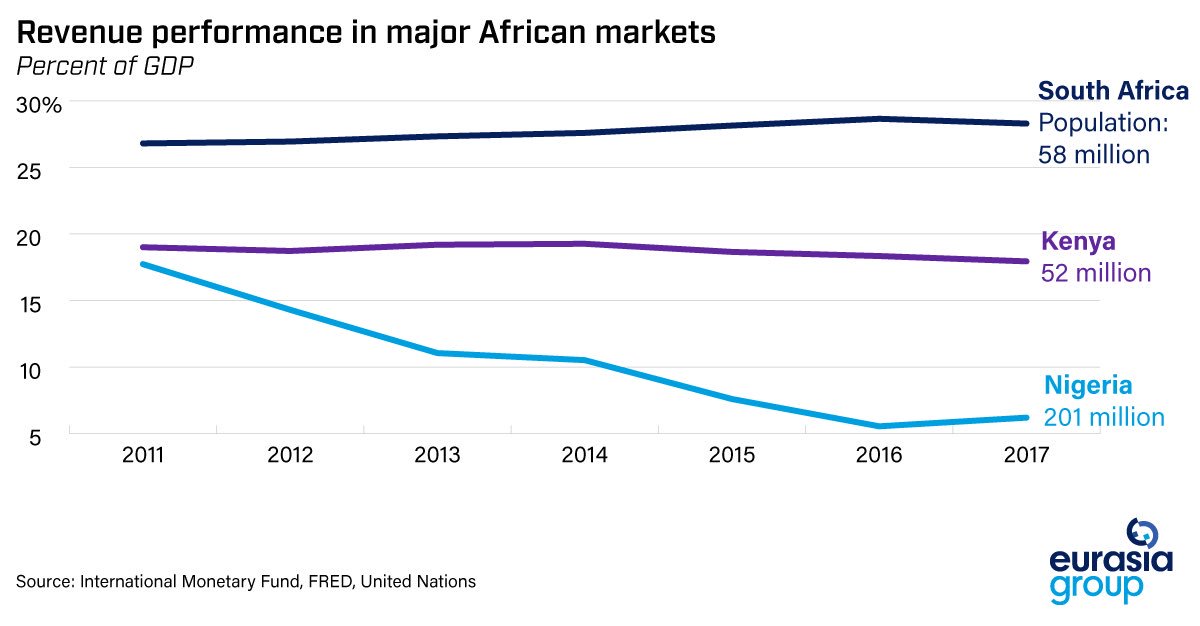
We need to be more nuanced in analyzing African government debt. Nigeria spending 9% of its GDP is by no means reckless. Problem is very little revenue to support that spending. So let’s focus on whether and how that spending is creating conditions necessary for growth.
https://twitter.com/StearsBusiness/status/1480811727130398722
Nigeria spends significantly less than most governments worldwide (not just compared to its peers).
@StearsBusiness - doublecheck your chart on government spending in the piece above. Ghana spends much more than 8% of its GDP.
@StearsBusiness - doublecheck your chart on government spending in the piece above. Ghana spends much more than 8% of its GDP.

Look at the chart above. Nigeria spends 2% of its GDP on salaries. Most Nigerian government employees are underpaid, and by all measures we have significantly fewer public employees than we need across the board (not enough policemen, teachers, health workers, etc).
Sure, there is (always) some public expenditure rationalization that can be done. Eg, I would shift resources away from unproductive desk civil servants to more service oriented field workers. And, some highly paid public servants (NASS, anyone?) can be cut down (or out 😅).
BUT even if you abolish NASS tomorrow, you won’t gain nearly enough money to even make dent in the public investments needed. So that is neither THE problem nor the solution.
Point is: you can’t achieve productivity (& revenue growth) without spending on critical govt services (security, health, education, etc) that make your economy competitive.
We need to acknowledge these inherent trade-offs & compromises. Growth isn’t going to happen magically..
We need to acknowledge these inherent trade-offs & compromises. Growth isn’t going to happen magically..
For those unfamiliar w/ Nigerian jargon, NASS = Nigeria’s federal legislature
Btw, not coincidence that govts that spend more on public services (including wages) are often easier places to live than Nigeria. A policeman in Ghana is much less likely to harass you for money than counterparts in Nigeria. Had lights out just once in Accra in a 2 week period. 

• • •
Missing some Tweet in this thread? You can try to
force a refresh








